Have you ever observed the light environment and thought if it’s good? C C Hwang, the Art Director of BeLight.com, did, and this experience may be one of the reasons why she decided to dedicate into lighting design. In LEDforum 2013 Taipei, Hwang shared her professional opinions on good lighting. Come with us and see the key idea!
-

-
C C Hwang, Art Director of BeLight
Light around you
Light is actually everywhere but only few people do pay attention to it. Take your living room for example – think about this: which kind of lighting condition do you have in your living room, and what kind of atmosphere do you really want for this space? Sometimes we care too much about quantity of light, such as CRI, CCT and LUX, but ignoring our true feeling and needs. Perhaps you feel very safe and convinced to the conventional white light, but it may not be so good.
It is always difficult to judge something without any measurement, so Hwang gives you a very easy but efficient method: perception. Think about some impressive scenes that ever jumped into your eyes: sunset at the beach, ripples reflecting sunshine at noon or an amazing architecture that being illuminated in an extraordinary way. There must be countless lighting styles people like, but they necessarily share one characteristic in common: a comfortable and appealing feel. Like the sun in deep winter or a lighting artwork that makes you yell “wow it’s cool!” observation is a perfect method for you to learn more about light.
-
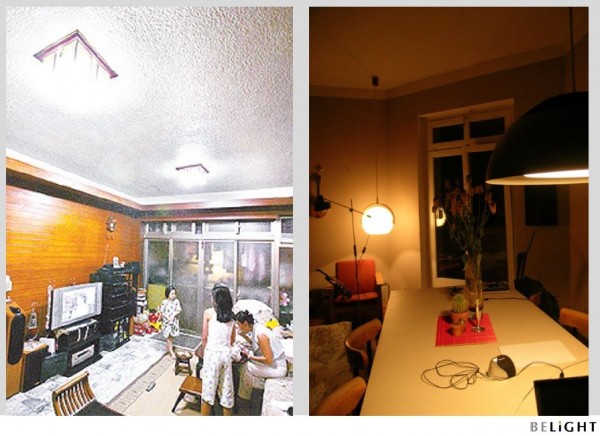
-
These two spaces are both living rooms, Think about your ideal living room and compare to both examples!
12 Criteria
Truly, there might be some bias if we judge good lighting by merely our feeling or perception. Lighting is an industry that combines several fields together and there are some objective criteria. During the LEDforum, Hwang introduced her innovative scheme to judge how good is a lighting project / condition. That’s a 12 Criteria bubble scheme.
-
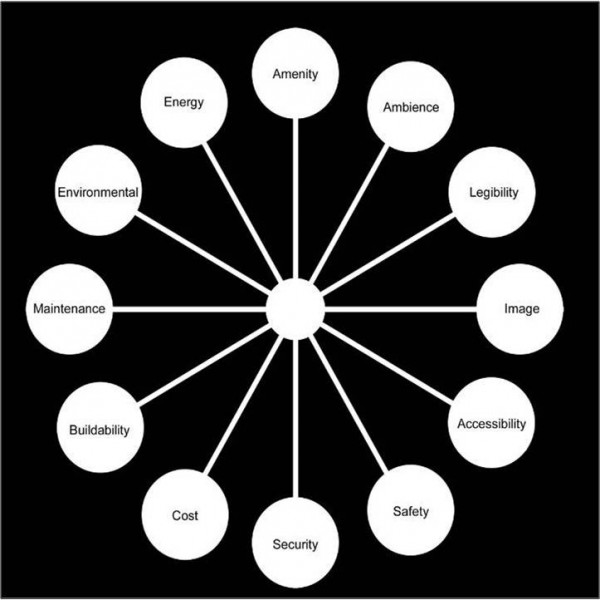
-
12 criteria
There are 12 criteria in this clear scheme: Amenity, Ambience, Legibility, Image, Accessibility, Safety, Security, Cost, Buildability, Maintenance, Environmental and Energy. The five criteria from Amenity to Accessibility are subjective feeling, Safety and Security are refereeing to basic requirements of lighting, and the rest criteria are objective standards for designers and manufactures to follow. For different spaces, it should be applied on different criteria; according to this scheme, we can identify the quality of a lighting condition in a clear way.
-
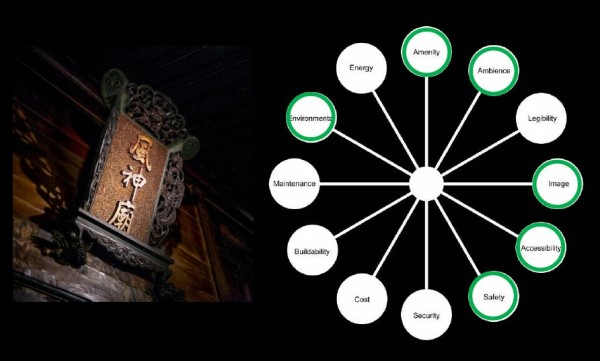
-
By this scheme, you can clearly understand a lighting project.
(LEFT): Photo Credit: Coretronic Culture and Arts Foundation
LED positives and negatives – EXAMPLES
Hwang cited four cases we have introduced on BeLight to point out the importance of feeling and adequate lighting design: the TNT Night Watching Tour, the Headquarters of Giant, Wind God Temple and St. Botolph’s Building. In order to interact with the audience in LEDforum who were mostly from LED related industry, she especially mentioned the application of LED lighting fixtures.
As we all know, LED has been truly a top trend in recent years. However, situations lit up by LEDs are hard to be perfect since some LEDs’ positives could be negatives to lighting designers or people who live around them. The TNT Night Watching Tour is a good instance to prove it: although streets in Ching-tien Community are lit up in an extremely bright way by LED street lights, those street lights are actually unsafe because they’re too bright for people to see everything clearly. Moreover, the over-bright circumstance destroys the tranquil ambience of the lovely community. It is highly possible that the authority replaced old lighting fixtures by LEDs for some energetic reason, but Hwang emphasized: “To me, the over-lighting means it is not necessary to consume such amount of energy, and this is actually energy wasting.”
-
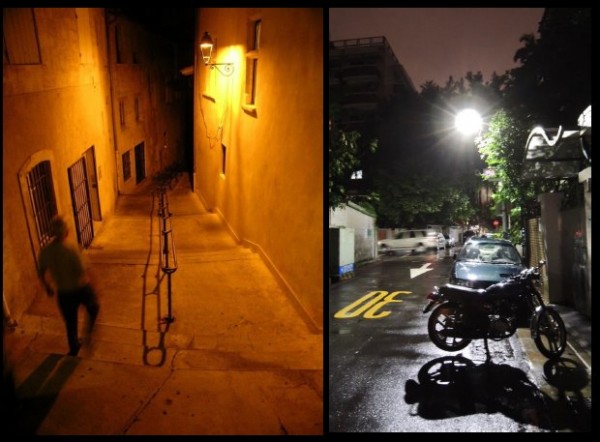
-
The left photo was taken in France and the right one is in Ching-tien Community. Is brighter better?
Nonetheless, there are many advantages that only LEDs can offer such as their flexibility. It is necessary for both designers and manufacturers to think about how to develop better LED quality since they are unavoidable in our lighting world. For lighting designers, they have to offer solutions based on their knowledge to spaces and LEDs; for LED manufacturers, they should communicate with their customers and give more concern for LEDs illuminating qualities. “A successful project like St. Botolph’s Building comes from the tight cooperation between lighting designers and manufacturers,” said Hwang at the end of her presentation. “I think it is needed for both sides to work together.”
So what is good lighting? There was no rigid answer since it depends on subjective and objective criteria. However, it is still very important that we should reconsider lighting conditions in our lives and think about the real functions we require through lighting.
-
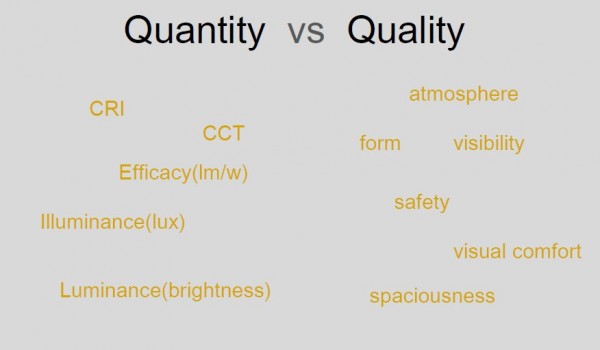
-
Quantity vs. Quantity


















